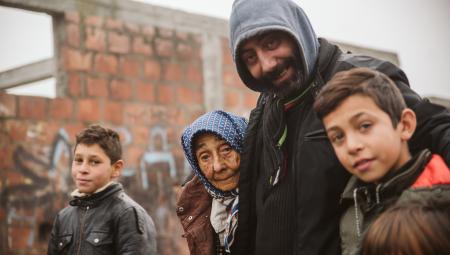Background
Care home research has grown in recent decades, and information collected by these studies can be repurposed, offering a valuable, low-risk and cost-effective opportunity for ‘secondary analysis’ – looking at information already available in a new way to see if we gain further learning from it. The Virtual International Care Homes Trials Archive (VICHTA) combines information from multiple studies about different care models and health conditions, including data from over 6000 residents.
Despite this wealth of information, topics researchers want to study may not reflect the priorities of people living in care homes, their families, or staff caring for them. Funders highlight the importance of talking to these people, to make sure we’re using data from studies wisely and focusing research funding on the right things. We discovered what key stakeholders think is most important to learn from research. Priority setting presents an opportunity to actively engage with care home networks and generate research ideas grounded in the lived experiences of residents.
Project Aims
The project aimed to achieve the following objectives:
1. Identify and build relationships with key care home stakeholders who can publicise the project among their networks and disseminate results
2. Identify key research priorities, particularly for care home residents and their carers, through a mixture of online, postal and in-person engagement
3. Map stated priorities with data available through VICHTA trials archive and other secondary data sources.
Project Activity
Step 1: Set up
Established an advisory group representing key stakeholders and social care researchers to foster networks and promote priority setting.
Developed project website (carehomepriorities.com) providing information about the study, including the purpose, background, and available trial data through VICHTA.
Step 2: Gathering priorities
Conducted an online survey for all stakeholders, a postal version was available on request. Concurrently, we distributed resource packs to care homes to ask residents about what is most important to them and what future research they suggest. These exercises with residents was facilitated by in-house activity coordinators.
Step 3: Processing priorities
Organised suggestions into clear summary questions and identified emerging themes, then checked potential research questions against existing evidence.
Step 4: Mapping to available data
Mapped research priorities to existing datasets like VICHTA to produce "oven-ready" research ideas. Where research ideas could not be answered using secondary data, we published the priorities to encourage new research.
Outputs
By working with people who really know about care homes, we ensured our research questions were relevant and useful. We ended up with a solid list of research priorities based on what these people think is most important. We shared these priorities through social media and circulate among NIHR Policy Research Units, academic journals, sector magazines, newsletters and webinars to build collaborations. This approach aimed to advance priority-setting methodology by mapping not only against existing evidence, but also against existing data that can be repurposed to address the suggested research questions, ensuring the optimal use of publicly funded research data.
Research prioritisation is an important means for minimising research waste and ensuring research resources are targeted towards questions of the most potential benefit. Repurposing existing data represents value for money for funders and ultimately the wider public. VICHTA provides substantial data for secondary uses, and this work enhanced its usefulness, by informing how best to exploit that data. Priority setting ensures the new questions asked are of benefit and a priority to key stakeholders in social care, including care home residents, relatives, staff, owners, local authorities and national policy makers. The list of priorities was promoted among researchers, with the anticipation this can foster new collaborations.
There was a strong emphasis on patient and public involvement in this project. As well as online and postal survey for a wide range of stakeholders, we engaged directly with care home residents, facilitated through activity co-ordinators already working in the home.
Who was involved?
Lisa Irvine and Kerry Micklewright, University of Hertfordshire
Funded through NIHR Policy Research Unit for Economic methods of evaluation in health and care interventions (EEPRU) (based at University of Sheffield)
Contact
l.irvine@herts.ac.uk





